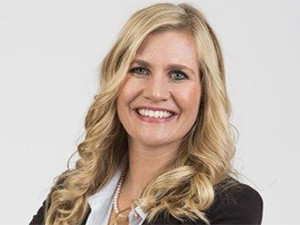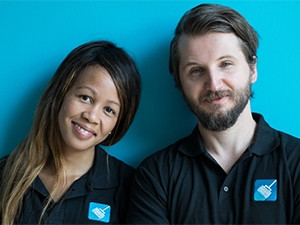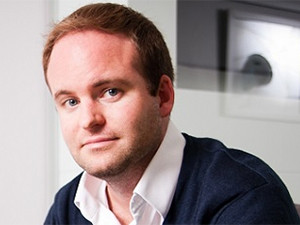
The South African tech start-up scene achieved several milestones during 2016 and the industry is upbeat 2017 will bring even better prospects.
ITWeb spoke to several players in the sector to get a better picture of their achievements and challenges, as well as expectations for the new year.
Most of them agreed that apart from raising hundreds of millions of rands in funding, the fintech space witnessed a flurry of activity in the year; local banks came to party in funding emerging businesses; and international players descended on SA's shores looking to back some start-ups.
Fintech surge
2016 has seen a significant rise in the acknowledgement of fintech, according to Dominique Collett, senior investment executive at Rand Merchant Investments (RMI) and head of AlphaCode - a club for fintech entrepreneurs in Africa.
"This has led to the development of hubs, centres, and emergence of funds looking to invest in fintech as the next wave to drive true innovation in this country," says Collett.
"This is interesting because South Africa has one of the most sophisticated financial services industries. Consequently, the rise of fintech has led to the recognition of its impact from large incumbents, the regulator and the entrepreneurs working tirelessly at disrupting the industry," she notes.
Aisha Pandor, co-founder of SweepSouth, concurs, saying a crop of fintech start-ups emerged in 2016, and there was a bigger focus on renewable energy and e-health.

She points out 2016 saw South African banks clamouring to get involved in the scene, with Nedbank, Barclays, FNB, Standard Bank and RMI all getting involved at different levels, whether it was through accelerators, pitching competitions or partnerships.
"There were also prominent international pitching competitions and incubators that came to SA in 2016 to focus on local start-ups, including SeedStars World/Standard Bank and the TechStars/Barclays partnership," says Pandor.
Justin Stanford, co-founder of venture capital (VC) firm, 4Di, says: "On the investment side, we are seeing increasing activity from angel investors, foreign VCs, and from corporates getting involved in the sector in various ways."
He says some corporates, such as banks, insurers and re-insurers, are looking into the likes of fintech opportunities through strategic investment arms, accelerators or other mechanisms. He believes the growing interest of angels means professional VCs are starting to see deals that are more fully baked early on.
According to Stanford, the growing presence of foreign VCs is bringing increased standardisation of global deal terms and structures. "On the start-up side, in general, we have seen a real growth in deal flow and activity - start-ups are definitely on the rise, and continually improving in quality. Trends that come to mind include the emergence of online lending platforms, digital solutions in the healthcare sector, the replacement of traditional banking and financial services with low-cost digital alternatives (with an emphasis on mobile), digital distribution of insurance, brokerage and other financial products, and the application of drones to industry."
Payments space
For Ryan Canin, founder and CEO of fintech start-up Docfox, there was a lot of activity in the payments space.
He notes there were also a lot more funds being created by both institutional funding and smaller independent funds.

On the other hand, Leonard Shenker, co-founder of fellow fintech start-up walletdoc, says a clear trend in the start-up space in 2016 is the recognition by larger, more established corporates of the contribution that start-ups make in the marketplace and the effect start-ups can have on corporate businesses.
"This is evident in the fact that more and more established companies are entering into partnerships with start-ups that can execute and innovate far more swiftly and cost-effectively than they can. This is a trend which was far less prevalent a few years ago. More than ever before, corporates are opting to co-operate with start-ups as they come to the realisation that start-ups can indeed disrupt, if not destroy, existing business models."
Another big win in 2016 was a strong focus on promoting and attracting women in tech, and organisations like Silicon Cape Women, GirlCode and Code4CT all helped with this, says SweepSouth's Pandor.
This was supported by Collett, who notes: "In 2016, we have seen a number of strong female businesses in previously male dominated environments come up. The Lioness of Africa has been driving this throughout the year and facilitating dialogue and opportunities for women to access funding and be supported to build sustainable businesses. This has been backed up by a conscious effort to fund female entrepreneurs."
Funding headaches
Although the start-ups have had their fair share of success stories this year, most still lament that funding is an ongoing problem.
"SA wasn't immune to the well-renowned Series A crunch, which is happening internationally, and 2016 was a year in which access to angel and seed funding improved, but it was significantly more difficult for start-ups in general to secure growth funding," Pandor says.

Canin adds funding in SA is always a challenge as the industry establishes itself. "There is very little precedent of how funding cycles work, as we haven't had decades of investment to exit cycles where investors and start-ups can see what works - like in Silicon Valley.
"As a result, investors are overly cautious and often offer unfavourable terms for entrepreneurs. In addition, start-ups are not necessarily familiar with the best way to interact with investors - what they are looking for, how to manage them post investment, etc."
Stanford agrees that funding is still an ongoing challenge for start-ups, as there is much more demand than supply.
"This is starting to change, though, as more funding and investment activity is emerging. Otherwise, the regulatory environment remains one of the principal friction areas for start-ups in SA, in particular, exchange controls and tax regulations. This still creates a perverse incentive in many instances for local start-ups to leave the country," he concludes.
Share